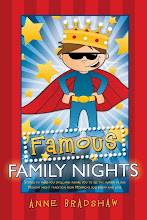By Christine Thackeray
Motivation is key to any strong plot, but it is also an interesting factor in terms of the author. Understanding as an author why we are writing a project can shift the way we create it and how much input we are willing to take. I also believe that as authors mature, their motivations for writing often change.
With my first book, I wrote it to illustrate how a single individual can make a magnificent difference if they follow the Spirit. At the time aware of a mini-feud going on in our small branch and it was my way of writing what I wish had happened. My next book, non-fiction was an intellectual study and although I believe it had moments of brilliance, typing it out was often more like a homework assignment.
"Lipstick Wars" was a different endeavor, written to help women see the impact they can have through diversity, being friends with people of all ages in and out of the church. It also dabbles in the theme of how women so often push each other away when we need each other most. I wrote it because a sweet friend pushed through my barriers and helped me through a very difficult time.
In writing group a few weeks ago one of my fellow authors was struggling with her book and was asked why she was writing it. Her response is she often lost her car when she came out of the grocery store and wanted to write about someone that had the same experience. That can be the nugget for starting a project but the reason for writing has to be bigger.
My motivations have been so didactic, illustrating truth, but I admire people who also include a strong desire to entertain. Can telling a thrilling story be the sole motivator of an author or do you think it needs to be more?
Saturday, June 5, 2010
Why Did You Write it?
Posted by Christine & Greg Thackeray at 12:35 AM
Labels: emotional writing, Improving Writing Skills, motivation
Subscribe to:
Post Comments (Atom)

















1 comments:
Your last question was very interesting. Thanks for the post.
Wanting to tell a thrilling story doesn't make it thrilling. The story and its value to the reader is the key.
Of course the purpose has to be interesting to the author, otherwise they wouldn't write, but it also has to be written with, as Stephen King puts it, the "ideal reader" in mind.
Post a Comment